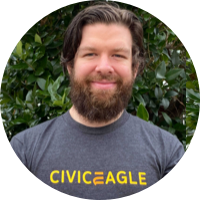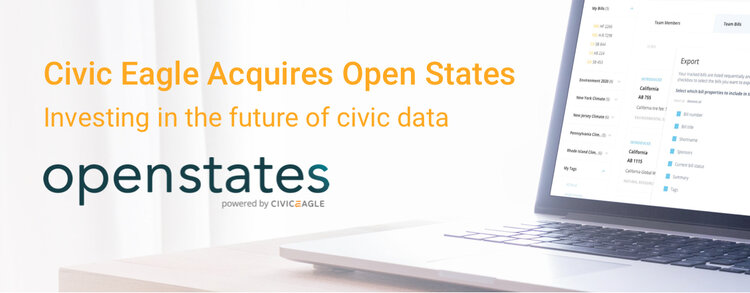
The project that’s become Open States began back in 2009 while I was an employee at Sunlight Foundation. There was great enthusiasm for civic tech at this time, but not much direction for developers interested in getting involved. How could we rally the community and concentrate this surge of energy toward places where it had the best chance to create meaningful change? An ambitious project idea emerged: a new data source focused on state legislatures, built and led by a team of volunteer developers around the country. From the start, Open States was as much about building this community as it was about organizing legislative data.
From the 2009 PyCon, where we really kicked things off, through today this community has remained essential to the project. During the project’s first five years at Sunlight we continued to grow the project, along the way bringing more people into the community. Whether it was a developer who changed jobs after working on the project, or someone who taught themselves to code so they could contribute in their state, these stories have always been my favorites to share.
The community of course isn’t just the 132 developers that have contributed to Open States’ scrapers; it also consists of those using the data, the APIs, and countless others who have found ways to promote the project through their own work. The project has seen use by some of the largest advocacy organizations, but also by the smallest, an individual citizen in a state looking to contact their legislator on an issue they feel passionate about. The project has been used by national and local media organizations, state legislatures themselves, cited in countless academic papers, and a growing number of startups have used the product as well.
Truthfully, the commercial usage sometimes led to some difficult conversations among the team, as at least one startup took Open States’ code wholesale and began to adapt it privately. This, while perfectly legal, was of course not in the spirit of the project and at times felt like a threat to the project’s existence. As many open source projects must, we accepted this as a small downside.
But we were more than glad to see that not all of these commercial organizations simply hoped to extract value and move on. Despite a bad experience or two, quite a few of these organizations were genuinely interested in giving back. This was the core of the decision to not ban commercial use or attempt to weigh down the source code with various encumbrances. These commercial users were just as much a part of the community as others, and could contribute in meaningful ways.
This became more important when the project became independent with the closure of Sunlight Labs back in 2016. It was here that the initial investment in openness and building a community really paid off, the team of ex-Sunlight employees that inherited the project all had day jobs, and we were depending on small grants and donations to keep the project afloat. Several organizations using the project stepped up in big ways, with major code contributions, financial support, and arranging introductions to potential donors. It was during this period that I first became aware of Plural, as their Chief Data Officer, Jesse Mortenson, began to contribute to community discussions. I was grateful that this startup was willing and able to give back to Open States, and understood the importance of collaboration.
2020 was in many ways a banner year for Open States, with several grants allowing me to resume full time work on the project. Of course, the grants were finite, and the pandemic also shifted a lot of funding priorities away from this kind of civic infrastructure project. Thinking forward to 2021 I knew that the future of the project was again in question. Would I try to maintain the project in my free time as I had for the first independent years? continue with some reduced capacity and accompanying sacrifices? or, worst case, have to step away and shut key parts of the project down?
I knew no matter what that I wanted the project to continue. It was right as I began to explore these opportunities that Plural reached out. I could tell right away from my conversations with Jesse and their CEO Damola that they wanted to see Open States succeed, not just eliminate it as competition or keep others from benefiting from the openness.
As we continued to discuss what joining forces would look like, it became clear that this choice was the best for both the Open States community and for Plural. I grew confidence that Open States could continue to grow under their umbrella, while remaining open. Open States’ growth will be driven in part by Plural and by community needs, in turn increasing the quality and breadth of public data.
I’m joining Plural as its new Director of Public Data because I know that they are a team that is passionate about doing good and that understands the importance of tools like Open States for the communities it has served for the past twelve years. I am excited that Open States’ future will no longer be tied to the free time of a few former employees of a nonprofit, or the whims of grant-giving organizations. I’m eager to continue to grow the Open States community in new ways as the project enters its thirteenth year.
Thank you for sticking with me,
James Turk
Director of Public Data, Plural

